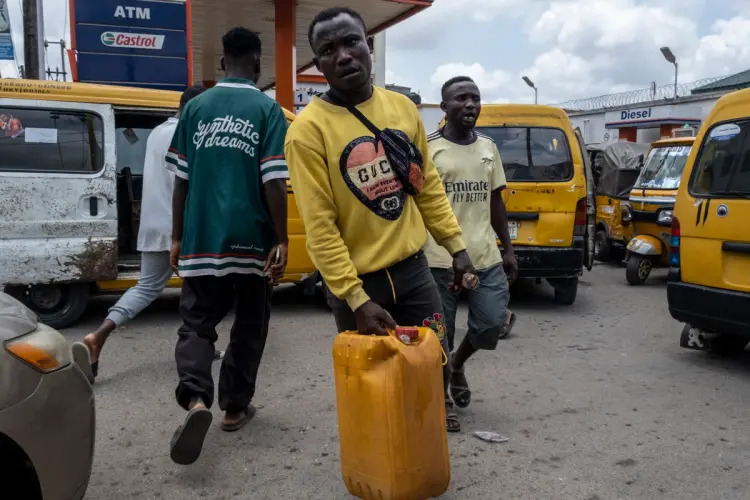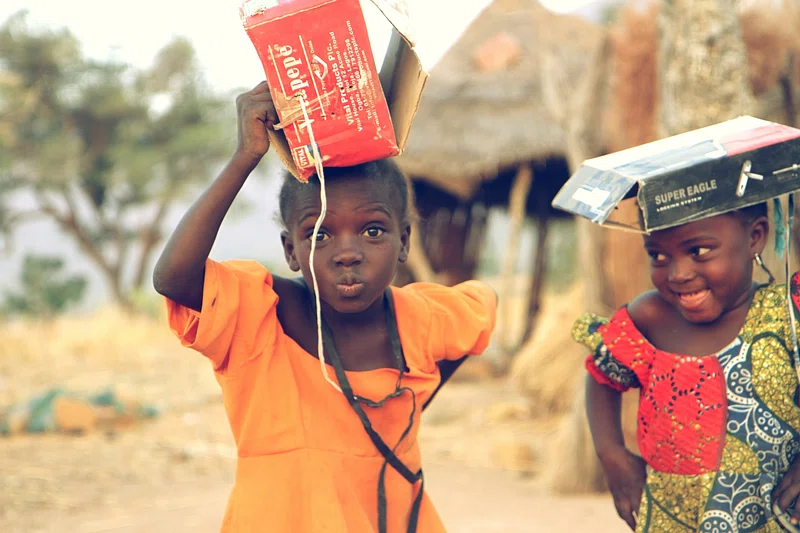The cost of living in Nigeria today is like a bad joke no one wants to laugh at—except it’s not even remotely funny. “A bag of rice costs ₦100,000. Let that sink in.”
That’s the kind of statement that sparks disbelief, frustration, and maybe even a desperate chuckle if you weren’t too busy calculating how to survive the next month.
Nigerians are living through what is probably one of the worst economic crises in decades, and asking anyone about it guarantees the same response: “We are suffering!” It’s no exaggeration—whether you’re in Lagos, Kano, or Enugu, the price of everything has shot through the roof, and it’s squeezing the life out of the average household.
Take rice, for example. What used to be a staple food affordable for most families now sits on the same shelf as luxury items. Depending on the brand, a 50 kg bag of rice can cost anywhere from ₦70,000 to ₦120,000

To put this into perspective, that’s more than the monthly salary of many Nigerians! How can a family be expected to afford such a basic necessity when incomes are not keeping pace with this dramatic inflation?
And it’s not just rice. Everything from fuel to bread has seen insane price hikes. The removal of the fuel subsidy in May 2023 was like throwing gasoline on a fire—pun intended. Fuel prices jumped from ₦238 to over ₦550 per liter, which has naturally made transportation, food distribution, and everything else much more expensive. So, when a loaf of bread that sold for ₦750 last year now costs ₦1,000, it’s no surprise that many families are skipping meals just to make ends meet
But of course, amidst all this chaos, Nigerian politicians are thriving. If you think Nigeria’s leaders are losing sleep over the hardship of their citizens, think again. They’re busy flaunting their ill-gotten wealth, cruising around in convoys, and enjoying life while the people struggle for crumbs.
Corruption has become so normalized that we barely raise an eyebrow anymore. After all, in a country where everyone seems to be a comedian or a social media influencer, who’s really paying attention to the serious issues?
Speaking of comedians, let’s talk about the youths.
Instead of rallying to demand better governance, many young Nigerians are more concerned with going viral on TikTok or Instagram. Forget agriculture reform. You think they’re ready to get their hands dirty in the fields? Not a chance.
They’re too busy perfecting their next comedy skit or, let’s be real, chasing after the latest trend in cosmetic surgery—BBL (Brazilian Butt Lift) is the new national hobby. No one’s asking where the food will come from, but we’re all tuned in to see whose “backside” is trending next.
The irony is that while everyone is busy laughing, the real jokers—our politicians—are getting away with murder, metaphorically speaking. They siphon public funds, flaunt their luxury cars, and yet manage to secure public adoration with a few handouts during election campaigns. It’s a classic “praise the thief” culture, where voters scramble for campaign freebies like packs of rice or cheap Ankara fabrics while completely ignoring the systemic issues driving their poverty.
But we can’t joke our way out of this one. Nigeria needs serious economic reform, starting with agriculture. For a country with so much arable land, it’s mind-boggling that we still rely heavily on imported food.
We import rice, we import beans, we even import toothpicks and BBL! Agriculture should be the backbone of the economy, but we’ve neglected it for too long. If we’re serious about tackling the food crisis, we need to make farming attractive again, especially for the youth.
However, the sad reality is that young people are more interested in Wi-Fi than farmland. Why would they toil in the sun when they can make money by going viral on social media? But farming is not just an old man’s job. In fact, with the right investment in technology, modern farming can be lucrative.
Countries like India and Brazil have made huge strides by leveraging tech in agriculture, and there’s no reason Nigeria can’t do the same. Imagine a world where the average Nigerian youth sees the same appeal in drone-assisted farming as they do in becoming the next social media sensation.
That said, even with a revolution in agriculture, we need more from our leaders. They must tackle corruption head-on. The rent-seeking behavior in Nigeria has to stop. Politicians enrich themselves while the masses suffer, and as long as this remains unchecked, any reforms will only benefit the elites
The gap between the rich and poor continues to widen, and unless we deal with this rot, Nigeria will remain a country where the rich dine on gold-plated plates while the rest of us are stuck calculating how to stretch ₦500 across three meals.
In the end, Nigeria’s cost of living crisis is more than just an economic issue—it’s a symptom of a deeper societal problem. As long as we allow corruption to thrive and prioritize jokes over action, the cost of living will continue to rise, and the future of millions will remain bleak. If we want to change things, we must demand more from our leaders, encourage real reform in agriculture, and most importantly, start taking ourselves—and our future—more seriously. Because the cost of living isn’t the only thing at stake; it’s the cost of Nigeria’s soul.
Follow us on Facebook and Instagram for the latest updates and exclusive content! Join our community now!




